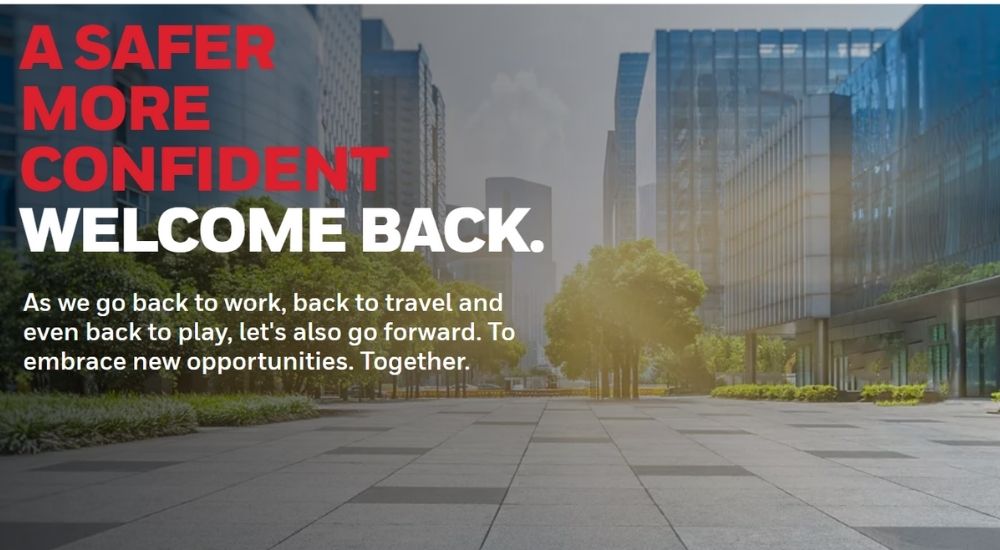90% facility managers in Saudi say indoor air quality important for occupants finds Honeywell

94% of surveyed healthcare facility managers see remote management as a critical enabler of operational efficiency for their buildings. This is according to a new report from Honeywell highlighting a trend towards greater adoption of connected, always-on building management systems that can enable a building to be controlled from virtually anywhere in the world, in real-time. According to the study, 25% of surveyed facility managers currently have such a system in place, with a further 26% expecting to invest in this technology over the next 12 to 18 months.
The report, Rethinking Healthcare Facilities as Integrated Entities, part of Honeywell’s 2021 Building Trends series, presents the challenges, priorities and assessments of surveyed facility managers across the healthcare sector in Saudi Arabia, the United States, China and Germany.
Occupant safety and wellbeing also ranked high in priority, with more than 90% of surveyed facility managers in Saudi Arabia saying improved indoor air quality and life safety systems are important to attracting and retaining facility occupants. Respondents are likely to invest in at least one of the following over the next 12 to 18 months: IAQ solutions 28%, fire detection software 28% or aspirating smoke detection 25%.
Additionally, operational challenges amplified by Covid-19 have raised awareness of predictive maintenance as a key enabler of efficiency, with 61% of respondents more willing to invest in it today than in pre-pandemic times. Just 30% of those surveyed currently have such a system in place, but 30% are likely to invest in this technology in the near-term and 27% will likely procure real-time tracking of people and assets to help enhance operational efficiency. The three improvements respondents believe would provide the greatest benefit to occupants are predictive maintenance 30%, reduced downtime 29% and better indoor air quality 28%.
Budgetary concerns also surfaced throughout the survey findings. Three in four respondents struggle with securing the financial resources to address their operational needs — an ongoing challenge for many healthcare organisations in Saudi Arabia further aggravated by Covid-19’s preemption of elective surgeries and other profitable treatments. Nearly as many 74% express concerns about keeping up with growing capacity needs. Despite these challenges, 31% of surveyed facility managers consider improving patient satisfaction one of their top near-term priorities, while 29% prioritise improving energy efficiency.
Now that they’ve dealt with the operational challenges of Covid-19 for well over a year, respondents in Saudi Arabia recognise that a smart building is foundational to increasing operational efficiencies and throughput. Nearly 64% of them are now more likely to invest in smart building technologies than in pre-pandemic times. As for which aspects of a smart building they consider most important, a majority 56% say improving staff productivity and building operations and 52% mention the ability to manage all building systems through a single platform with unified data and insights.
A connected healthcare facility can centrally monitor, align and manage multiple processes to optimise workflows and otherwise improve operational throughput. Such a facility can also use its integrated technology platform to generate revenues and control or avoid costs. Integrating multiple technology domains gives facilities the tools they need to improve patient experience and staff satisfaction with innovations such as self-service patient portals and mobile apps for clinical staff.
“Connected healthcare facilities, with features such as remote management, have been shown to improve patient care, clinical outcomes and operational efficiency,” said Abdullah Al-Juffali, country leader, Honeywell Building Technologies, Saudi Arabia. “Facility managers in Saudi Arabia increasingly require improved indoor air quality, addressing the current heightened health and safety concerns and occupant comfort awareness.”
“Increasing operational insight can help facility managers optimise the use of their assets to avoid bottlenecks, cut waiting times and upgrade the overall patient experience. Many of these goals can be achieved by upgrading an existing building management system without the need to rip and replace. This is important as facilities are increasingly expected to improve day-to-day outcomes and enhance efficiencies with little or no increase in budgets,” said Al-Juffali.





